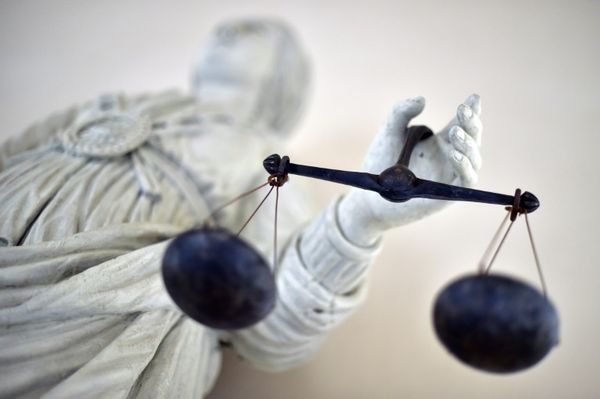
The federal government has been accused of trying to hide the publication of the long-awaited official history of Australia’s East Timor peacekeeping mission, the first volume of which was quietly released in early December.
Written by the Australian War Memorial’s official historian, professor Craig Stockings, Born of Fire and Ash is the product of six years of rigorous research into Australia’s response to the East Timor crisis, when Indonesian forces committed rampant human rights atrocities against the East Timorese on the eve of their UN-sponsored referendum on independence.
The book draws on classified government documents and more than 2500 interviews with veterans and government officials spanning defence, intelligence and foreign affairs, exposing the political calculations grounding the Howard government’s response to the crisis.
One senior source with knowledge of the project told Crikey the near-3000-page tome was of material national significance, not least because it directly countered the political myths surrounding Australia’s eventual peacekeeping mission in East Timor.
“The public’s impression of the crisis — that Australia essentially led the charge to save East Timor — is an obfuscation,” the source said.
“The book clearly shows that the government and its officials did their level best to resist military intervention in East Timor until the very end because they considered their relationship with Indonesia to be far more important than the East Timorese — that’s the truth.”
A policy of suppression
It’s a view echoed by historian Clinton Fernandes, who recently said the book had unmasked the overriding policy objective of successive governments, up to and including Howard’s, to be one focused on suppressing East Timor’s independence from Indonesia.
“What [Stockings] was able to do in the book,” Professor Fernandes said, “is go through the deep roots of the policy, showing that DFAT protected Indonesia when it committed genocide in the ’70s and in the 1980s and ’90s.”
“The policy’s real objective was to keep Timor inside Indonesia.”
Despite the significance attached to the book as an official history, however, no media release or official launch marked its publication last year, provoking the ire of historians and the Australian Defence Association (ADA) alike.
Speaking to Crikey, ADA executive director Neil James said: “Is it not suspicious, is it not odd, that there’s been no official launch for the book by the [Australian] War Memorial, which published it?
“It’s not just very, very strange, it’s also unprecedented. Every official history series since the tradition commenced [during World War I] has been launched with much fanfare, except this one.”
James raised this anomaly directly with the bipartisan Joint Standing Committee on Foreign Affairs, Defence and Trade in its December hearing on war powers reform, but was met with no response.
“We need to move on,” said chair and Labor MP Julian Hill at the time, citing time constraints.
A number of sources since contacted by Crikey, including Stockings’ immediate predecessor, official historian and professor emeritus David Horner, shared James’ concerns.
“It was surprising there was no book launch,” Horner said. “But I do understand the thinking behind it, which is that governments get extremely nervous about official histories because they think they might embarrass them or affect official relations with other countries.
“Most of the concerns with respect to the latter are, in my view, completely unwarranted, but nonetheless they persist.”
Pre-publication pressure
In Horner’s view, the absence of a book launch could validly be construed as an extension of the “unprecedented political interference” that underpinned attempts by DFAT to have the book’s content modified pre-publication during the Morrison government.
Heavily redacted correspondence between Stockings, DFAT and the Australian War Memorial, obtained under freedom of information three years ago, confirmed earlier reports that DFAT was pressuring Stockings to water down revelations in the official history.
The ensuing standoff between DFAT and Stockings, which some sources claim infuriated Stockings to the point of resignation, was widely likened to “attempted censorship” at the time.
“There’s nothing unique about departments reading an official history before publication to check for accuracy or to ensure the contents have been declassified,” one source told Crikey. “But this clearance process is only supposed to take six months — in this case it took three years.
“[Stockings] made it abundantly clear he wouldn’t put his name to a book that he didn’t believe was historically credible, hence the extraordinarily long delay.”
Former independent senator Rex Patrick, who lodged the original freedom of information request, told Crikey he was still seeking full access to the correspondence, with the matter awaiting determination by the information commissioner.
“The fact of the matter is that DFAT objected to some elements in the original version, and my concern was that DFAT was trying to manipulate history,” Patrick said.
“I suspect that [Stockings] may have been too honest and open for DFAT’s liking about oil and gas negotiations and Australia’s relationship with Indonesia.”
Horner, for his part, said these same sensitivities largely explained the long-standing reticence of successive governments to commit to an official history on East Timor until mid-2015.
Contrary to some media reports, he said, the official history on East Timor — which was commissioned alongside a separate four-volume history on Australia’s involvement in Iraq and Afghanistan in mid-2015 at Horner’s agitation — was never a “legacy project” of former prime minister Tony Abbott.
It instead owed its existence to the absurdity arising from the government having commissioned two separate official histories dealing with deployments in the Middle East that bookend the crisis in East Timor, but not one on East Timor itself.
“In 2006, I tried to have East Timor included in my series on peacekeeping and humanitarian operations, but I was refused,” he said.
“The then deputy secretary in foreign affairs and trade said there was no need for an official history on East Timor because it was not the job of the people to know these things and that I was not to ‘speak to the minister [for foreign affairs Alexander Downer] about it’.
“Clearly, it’s not up to some bureaucrat to say what should be secret. Official histories are extremely important documents: the public has a right to know what was done in its name, and where and why its soldiers were doing what they’ve done.”
Decision to delay
On Friday, the Australian War Memorial said a decision had been made to postpone the “official launch” of Stockings’ book.
“After being delayed through a protracted government clearance process, the priority for the memorial was to release this book to veterans and the general public as soon as possible,” it said in a written statement.
“The chosen date was not suitable for a number of key stakeholders and the decision was taken by the memorial to postpone.”
Sources have confirmed the official history team was advised of the same late last week.
The Department of Foreign Affairs and Trade did not respond to questions about its possible role in minimising the book’s publicity, instead indicating this was a matter for the Australian War Memorial to answer.







